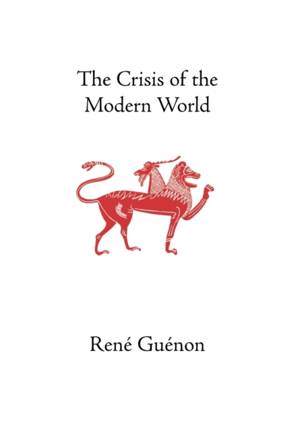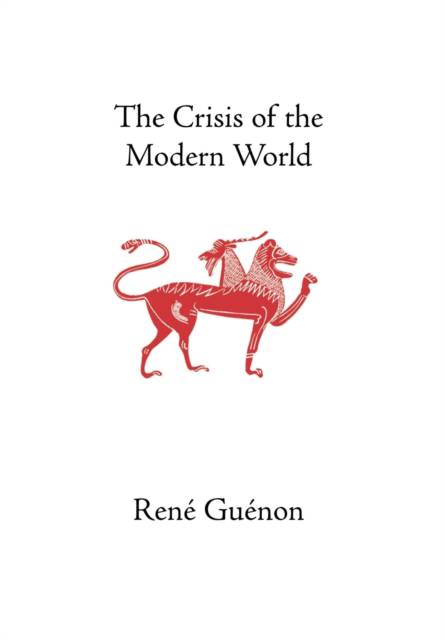
- Afhalen na 1 uur in een winkel met voorraad
- Gratis thuislevering in België vanaf € 30
- Ruim aanbod met 7 miljoen producten
- Afhalen na 1 uur in een winkel met voorraad
- Gratis thuislevering in België vanaf € 30
- Ruim aanbod met 7 miljoen producten
Zoeken
€ 30,95
+ 61 punten
Uitvoering
Omschrijving
It is no longer news that the Western world is in a crisis, a crisis that has spread far beyond its point of origin and become global in nature. In 1927, René Guénon responded to this crisis with the closest thing he ever wrote to a manifesto and 'call-to-action'. The Crisis of the Modern World was his most direct and complete application of traditional metaphysical principles-particularly that of the 'age of darkness' preceding the end of the present world-to social criticism, surpassed only by The Reign of Quantity and the Signs of the Times, his magnum opus. In the present work Guénon ruthlessly exposes the 'Western deviation': its loss of tradition, its exaltation of action over knowledge, its rampant individualism and general social chaos. His response to these conditions was not 'activist', however, but purely intellectual, envisioning the coming together of Western intellectual leaders capable under favorable circumstances of returning the West to its traditional roots, most likely via the Catholic Church, or, under less favorable ones, of at least preserving the 'seeds' of Tradition for the time to come.
Specificaties
Betrokkenen
- Auteur(s):
- Vertaler(s):
- Uitgeverij:
Inhoud
- Aantal bladzijden:
- 136
- Taal:
- Engels
- Reeks:
Eigenschappen
- Productcode (EAN):
- 9780900588501
- Verschijningsdatum:
- 22/05/2004
- Uitvoering:
- Hardcover
- Formaat:
- Genaaid
- Afmetingen:
- 166 mm x 236 mm
- Gewicht:
- 408 g

Alleen bij Standaard Boekhandel
+ 61 punten op je klantenkaart van Standaard Boekhandel
Beoordelingen
We publiceren alleen reviews die voldoen aan de voorwaarden voor reviews. Bekijk onze voorwaarden voor reviews.











